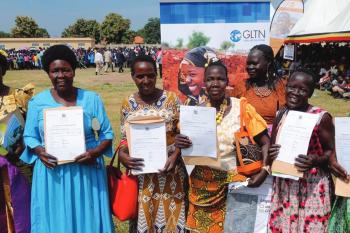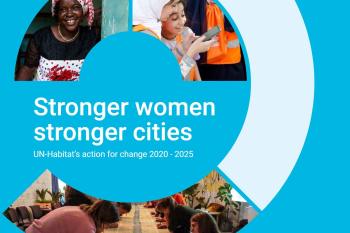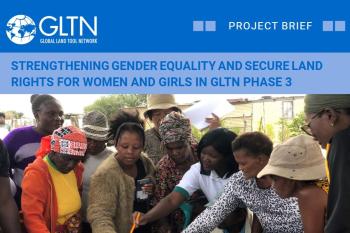
Read More
Gender Strategy for Land-at-Scale Uganda
Women’s Land Rights (WLRs) are fundamental human rights, foundational to gender equality and women’s dignity and instrumental in improving food security, effective climate action, poverty eradicati

Conventional land administration systems rarely improve tenure security for the poor. Land registration is not a neutral process. It usually aims to create “active” tenure security so that documented (“titled”) land can be managed in a formalized system.
For poor people, the priority is “passive” tenure security so that they may avoid eviction or losing their right to the land.
A “continuum of land recording” approach can develop into one that also increasingly supports “active” tenure security, but which begins the process from the more protective “passive” side.

Women’s Land Rights (WLRs) are fundamental human rights, foundational to gender equality and women’s dignity and instrumental in improving food security, effective climate action, poverty eradicati

This publication presents a summary of UN-Habitat’s gender equality impact over the past five years, in line with the Beijing reporting cycle.

GLTN’s institutional commitment to gender equality and secure land rights for women and girls has been at the core of its work since inception in 2006.